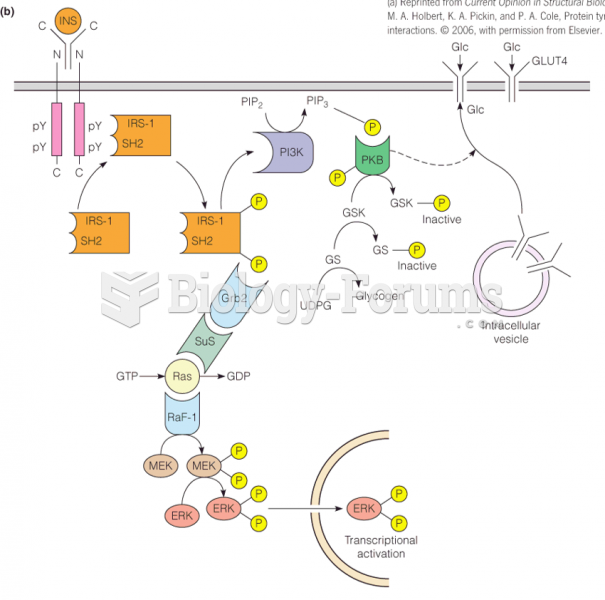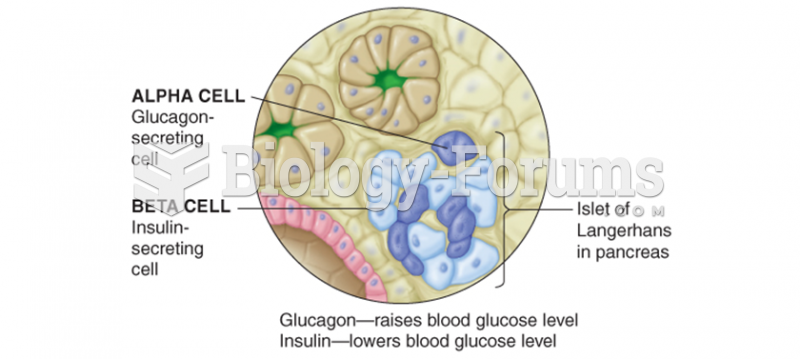|
|
|
The longest a person has survived after a heart transplant is 24 years.
Sperm cells are so tiny that 400 to 500 million (400,000,000–500,000,000) of them fit onto 1 tsp.
Though Candida and Aspergillus species are the most common fungal pathogens causing invasive fungal disease in the immunocompromised, infections due to previously uncommon hyaline and dematiaceous filamentous fungi are occurring more often today. Rare fungal infections, once accurately diagnosed, may require surgical debridement, immunotherapy, and newer antifungals used singly or in combination with older antifungals, on a case-by-case basis.
More than 2,500 barbiturates have been synthesized. At the height of their popularity, about 50 were marketed for human use.
Bacteria have been found alive in a lake buried one half mile under ice in Antarctica.






